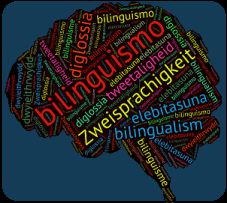Workshop title:
Generative Linguistics in the 21st Century: the Evidence and the Rhetoric
Keynote speaker:
Prof. Noam Chomsky (MIT, USA)
Plenary speakers
Prof. Adriana Belleti (University of Siena, Italy)
Prof. Hagit Borer (Queen Mary, London, UK)
Prof. Stephen Crain (Macquaire University, Australia)
Prof. Tanja Kupisch (University of Konstanz & UiT the Arctic University of Norway)
Prof. Terje Lohndal (NTNU & UiT the Arctic University of Norway)
Prof. Luigi Rizzi (University of Siena, Italy & University of Geneva, Switzerland)
Prof. Ian Roberts (Cambridge University, UK)
Prof. Ianthi Tsimpli (Cambridge University, UK)
Prof. Charles Yang (University of Pennsylvania, USA)
Moderators
Prof. Jason Rothman (University of Reading)
Prof. Doug Saddy (University of Reading)
Where: University of Reading
When: May 11th, 2017
Hosts: The School of Psychology and Clinical Language Sciences (PCLS)
The fields of linguistics, cognitive science and psychology were forever changed starting in the 1950s on the coattails of the cognitive revolution against behaviourism. Chomsky’s (1959) review of Skinner’s Verbal Behaviour is one of the key turning points in this endeavour from which what would become the dominant theory of modern linguistics was born. Generative linguistics, often referred to as Universal Grammar (UG), has maintained for six decades now that humans are born endowed with domain-specific linguistic knowledge. In other words, the human brain comes pre-equipped with some type of innately determined blueprint to the general structure of language. Exactly what is universal and domain-specific with respect to linguistic knowledge has been the matter of debate and changing proposals over the past 6 decades, however, the core tenet of the generative program remains: at least some parts of language are provided by a genetic endowment. Although there is no question that parts of language are/can be learned in the truest sense, that input quantities and qualities matter, that social environment and interaction bring much to bear, a careful consideration of the preponderance of all evidence still “leaves little hope that [much of the structure of] language can be learned by an organism initially uniformed as to its general character, Chomsky, 1965: 58”. The purpose of this workshop is to present and consider the evidence that still points in this direction, while at the same time sifting through and seriously considering the rhetoric that in recent years has rejected the general tenets of generative linguistics. In doing so, we will examine the role of generative linguistics at present and consider where it will be going as the 21st century unfolds. The workshop features a keynote talk by Professor Chomsky and plenaries from 9 other renowned linguists, working on formal linguistic theory and its application to acquisition and processing in children and adult learners. The day culminates in a moderated panel discussion with all our invited speakers, where audience members can ask questions.
If you are interested in attending this workshop, please email pclsevents@reading.ac.uk to register your interest by Friday 20th January 2017. Further details about the workshop, including how to book will be announced soon.

